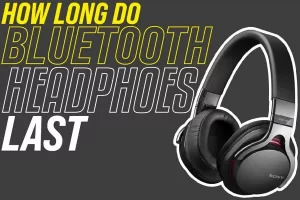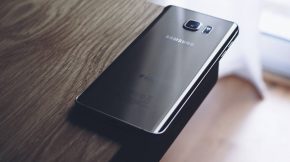How Long Do Bluetooth Headphones Last- What You Should Know About Bluetooth Headphones
Share
Bluetooth headphones have come of age, with lots of new features added from year to year. There have been many advancements in Bluetooth battery technology, and today we have advanced headphones with bigger batteries that can hold current or power for more extended periods. When compared to earbuds, most headphones will hold charges for more extended periods longer. There are so many things that will determine how long Bluetooth headphones will last, and most are how you use them.
So, How Long Will Headphones Last?
Most Bluetooth headphones will last between 6 and 12 hours after a single charge, unlike earbuds that last for 3-6 hours.
Battery Usage: How Long Do Bluetooth Headphone Batteries Last
While Bluetooth headphones should last between 6 and 12 hours, some premium headphone batteries may last for up to 22 hours and, in some cases, 30 hours if you switch off the noise cancellation feature. The following are things you should know about Bluetooth headphones;
1. Wireless Headphones are a Lot Easier to Use than Regular Headsets
With wireless headphones, you are not restricted to a distance, and you can move around or travel long distances with the Bluetooth wireless headphones. Wireless headphones don’t have cables, except for the one you use in recharging the device.
Since they don’t have cables, you don’t have to worry about cables tangling up and creating a messy connection. When picking headphones. Though wireless headphones may be more convenient than conventional headphones, they may consume more power than average headphones.
2. How Long Does It Take to Change a Wireless Bluetooth Headphone?
The total recharging time for wireless Bluetooth headphones will vary and mostly depend on the battery capacity. It can take between 2-3 hours to charge an average Bluetooth headset, especially those with larger battery capacities. In most cases, there are few headphones with rapid charging devices to reduce the total time to reduce the charging time.
There are modern wireless headphones with 1-2 hours of recharge time, and some can be charged in less time if the battery capacity is smaller. Wireless headphones can reach 50% charge in less than 30 minutes.
An LED battery indicator indicates how much your Bluetooth headphone has been charged. The LED indicates red while charging and will turn green when fully charged.
3. Does Wireless Bluetooth Headphone Battery Drain When Put in Standby Mode?
Though wireless Bluetooth headphones may consume battery juice much quicker than regular wired headphones, not every feature you activate on the headphone will make you lose battery power quickly.
Your wireless Bluetooth headphone will indeed consume more power in the standby mode, but that consumption will be negligible. However, keeping your wireless headphones connected to a mobile device without playing any song does not drain your battery, unlike what many people believe.
During a standby mode, a wireless device will be connected to another device, and in that state, both devices will be exchanging information. Though the power requirement for the exchange of information between the two devices is low, there is little power consumption.
This simple explanation explains why the talk and listening times on Bluetooth headphones are different from battery power consumption in standby mode. You will notice that your battery consumption will be similar even when you don’t put your headphones in standby mode at any time.
4. Which Bluetooth Wireless Headphones Has the Best Battery Capabilities
In addition to putting your wireless headphones in different modes, there are some other factors that can determine how battery power lasts. For instance, the Bluetooth technology type can affect how quickly or slowly you use up your battery. Bluetooth 4.0, also known as BLE or Bluetooth low energy, will consume less battery power than Bluetooth version 2.0, which is a high-energy rated version.
When choosing Bluetooth headphones, perhaps you should consider a version 4.0 BLE ahead of the 2.0 version to save more battery power. There are some Bluetooth wireless headphones that come with version 4.1, and these can support up to 80 hours of usage when fully charged. In addition to providing more battery power, such headphones may provide higher quality audio.
Aside from the Bluetooth version of your headphones, it appears the bigger the battery capacity, the less battery power consumption. For instance, headphones with 1000mAh battery capacities or higher can support up to 50 hours of headphone usage. Though it may take more than 3 hours to recharge these batteries fully, you will surely enjoy their delivery more than those with smaller battery capacities.
The 600 mAh battery, for instance, may deliver not more than 30 hours of headphone usage, which is still good but not the best, especially for travelers. There are headphones with Bluetooth version 5.0, and these ones can deliver up to 24 hours of music playback plus almost 100 hours of headphone usage. These headphones will still sustain days of usage even when you activate the noise cancellation feature.
5. Will Your Headphone Battery Die After Excessive Use?
Most Bluetooth headsets rely on Lithium Ion or Lithium Polymer batteries, and these types are fa better than the Nickel-Cadmium options. Lithium batteries have self-discharge features, suffer from much lower memory effects, and can withstand extreme temperatures, unlike Nickel-cadmium batteries.
Since both Lithium and Cadmium batteries have limited charge cycles, they will eventually die after prolonged usage; hence you will need to replace them.
After a particular level of charging cycles, the battery performance of a headphone declines noticeably. On average, most Lithium batteries have charge cycles of between 500 and 1000; this means that if you charge the headphone every day, the battery will probably die out after 2-3 years. Assuming you charge your headphones once every 3 days, the battery may last for 4-5 years before any replacement; hence you should avoid unnecessary charging of your Bluetooth headphones. One rule professionals do recommend is that you should allow the battery to run to its last 5-10% before you recharge it but never allow it to discharge completely before recharging.
Other Things To Look Out For When Buying Bluetooth Headphones
In addition to the battery lifespan and capacity, the following are essential factors you must consider when choosing Bluetooth headphones;
1. Bluetooth Version and Connectivity Range
Perhaps the range and version of Bluetooth connectivity are the next two most important things after battery size. You will notice that most Bluetooth wireless headphones have a range of fewer than 9 feet, which means your connected device must be within range to remain connected. If possible, you should consider a range that is longer than the average if you want more flexibility for connecting devices that are not within your immediate reach.
It is also important to keep in mind that the greater the version number of Bluetooth, the better. For instance, a Bluetooth version 5.0 will consume less battery power than one of versions 4.1 and 2.0. You may want to go for headphones with a range of more than 10 feet.
2. Sound Quality
We all want a better sound that is clear and crisp; hence it is important to check this before you purchase the headphones. Headphones with noise cancellation are a must, except you can cope with the interferences from external noises. There should be no distortion in the sound spectrum whether you are recording, listening to music, or receiving a phone call. The sound quality of headphones is rated in “dB.” You should compare the sound ratings for each option you have.
3. Build Quality
Most Bluetooth headphones are designed with plastic, light metal, alloys, and rubber. It is better to go for headphones made with a combination of these materials than one that is completely made of plastic. You need a sturdy and durable headphone that can last you for years, and such devices must have some shatter-proof design so they wouldn’t break easily.
It is widely believed that the more portable headphones are easier to manage; hence they are less susceptible to mechanical issues. This may not be true in all cases, and rather you should have a headphone that has some protection features.
Conclusion
Bluetooth headphones will last for as long as you want them to last, especially with proper handling and usage. You should have it at the back of your mind that the less the number of charging times, the longer your headphones will last.
Though headphone price is an important factor for selecting the best option, you need to know that premium quality headphones come at a higher price. You must do everything to avoid sacrificing quality for the price. For this reason, you may want to have a flexible budget where you can go for a premium Bluetooth headphone with better features. A higher Bluetooth grade, larger battery capability, and better sound quality with greater durability should be your primary concern when buying headphones.

















